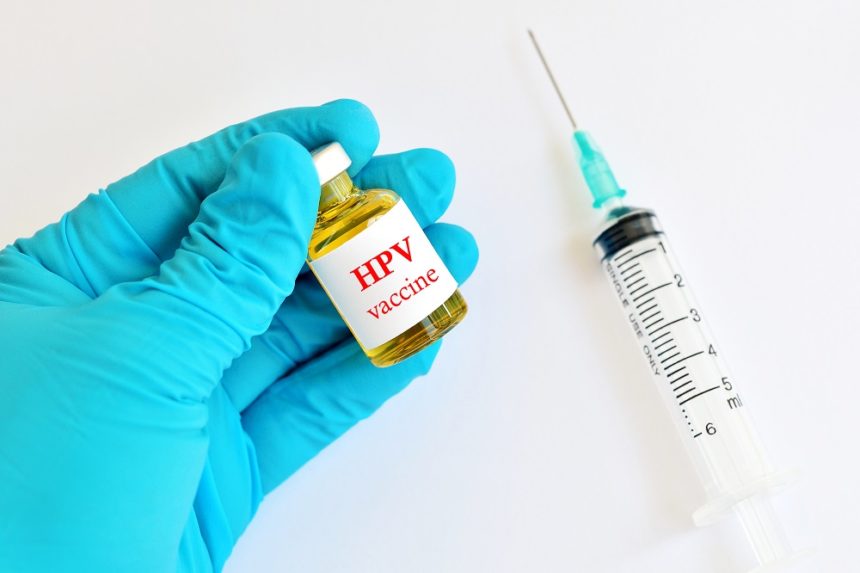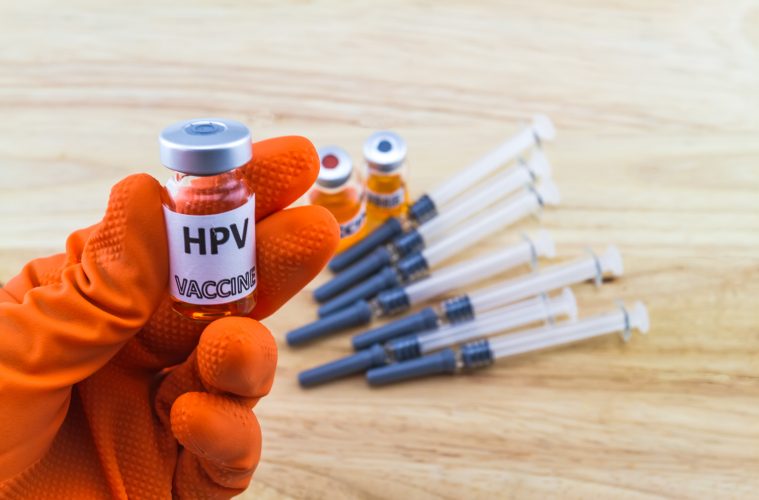HPV Vaccination - Cervical Cancer Prevention

What is HPV?
HPV vaccines are vaccines that protect against infection with human papillomaviruses (HPV). HPV is a group of more than 200 related viruses, of which more than 40 are spread through direct sexual contact
There are many types of HPV, some of which are called "high risk" because they're linked to the development of cancers, such as cervical cancer, anal cancer, genital cancers, and cancers of the head and neck.
Other types can cause conditions like warts or verrucas.
High risk types of HPV can be found in more than 99% of cervical cancers.
There's a lesser association between HPV and some of the anal and genital cancers, and cancers of the head and neck.
HPV infections do not usually cause any symptoms, and most people will not know they're infected.
High-risk types of HPV are linked to different types of cancer, including:
- cervical cancer
- vaginal cancer
- vulval cancer
- anal cancer
- cancer of the penis
- some cancers of the head and neck
It also helps protect against genital warts.
HPV vaccine can help prevent cervical cancer
Regular screening tests and the HPV vaccine as well as making healthier lifestyle choices - such as not smoking, practicing save sex, etc, - can help prevent or reduce your risk of getting cervical cancer.
HPV vaccine types: How do they work?
"The HPV vaccines available are of three types depending on the number of types they are targeted against," said Dr Ray as she explains the different types of HPV vaccines, including how they work and how they are administered to individuals.
- Quadrivalent HPV vaccine (Gardasil) targets HPV types 6, 11, 16, and 18
- 9-valent vaccine (Gardasil 9) targets the same HPV types as the quadrivalent vaccine (6, 11, 16, and 18) as well as types 31, 33, 45, 52, and 58
- Bivalent vaccine (Cervarix) targets HPV types 16 and 18
In India, the first and the third types of HPV vaccines are available.
The HPV vaccine has the potential to prevent more than 90 per cent of HPV-attributable cancers. As per the CDC, the HPV vaccine can offer long-lasting protection against HPV infection and HPV disease. Extensive studies over years have shown that HPV vaccination was associated with a reduction in the incidence of cervical cancer, and vaccination prior to age 17 years compared with later was associated with an even lower incidence.
When should the HPV vaccine be given?
- The time to administer these vaccinations is before the initiation of the first sexual activity. It can be given as early as 9 years.
- Till 15 years of age, only 2 doses are required.
- Between 13 to 26 years, three doses are required.
- Above 26 years of age, its recommended on an individual basis.
- The HPV vaccine is especially recommended for previously unvaccinated adults aged 27 to 45 years who have a low likelihood of prior HPV exposure (e.g., no prior sexual experience or a limited number of prior sexual partners) but have a future risk of HPV exposure (e.g., new sexual partners) and for health care workers who may be at risk for occupational exposure to HPV, even if they are older than 26 years. However, the effectiveness is reduced after 26 years especially if one has been sexually active.
Dosing of the HPV vaccine is as follows:
- Individuals initiating the vaccine series before 15 years of age - two doses of HPV vaccine should be given at 0 and at 6 to 12 months.
- Individuals initiating the vaccine series at 15 years of age or older - three doses of HPV vaccine should be given at 0, 1 to 2 (typically 2), and 6 months.
The minimum intervals between the first two doses are four weeks, between the second and third doses is 12 weeks.
No prior HPV testing is required before the vaccination. Also, no post-vaccination testing is recommended to measure the antibody levels. The protection is said to be over many years and, hence, revaccination after a full-time course is not recommended.
Who should not get the HPV vaccine?
The HPV vaccine is not recommended for pregnant women or people who have ever had a life-threatening allergic reaction to any ingredient of an HPV vaccine, or to a previous dose of the vaccine. Individuals who are moderately or severely ill should wait until they are better. You should tell your doctor if you have any severe allergies.
Does the HPV vaccine carry any side effects?

The HPV vaccine, like any other vaccines, can have some side effects. The most common side effects include soreness, swelling or redness at the injection site, fever, headache, feeling tired, nausea, muscle or joint pain, etc. Brief fainting spells and related symptoms can occur after any medical procedure, including vaccination. The CDC guidelines stated that on very rare occasions, severe (anaphylactic) allergic reactions may occur after vaccination. Overall, the side effects of the HPV vaccine are usually mild.







